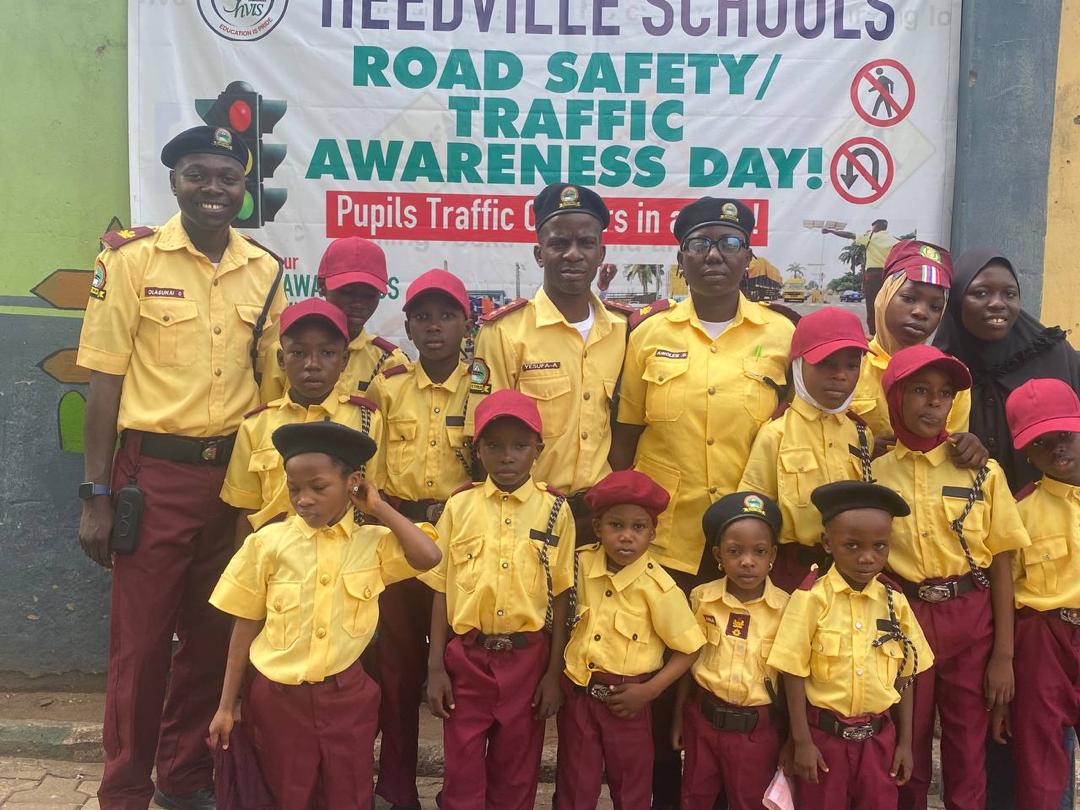
Adebayo Taofiq Aribidesi
In the unrelenting symphony of Lagos—the colossal megacity whose ceaseless rhythm reverberates across its gridlocked highways, teeming marketplaces, and frenetic boulevards—mobility stands at once as a lifeline and an omnipresent peril. With a population surpassing twenty-two million and vehicular density exceeding one million, the city is a daily theatre where the fragile threshold between human life and mechanical force is relentlessly tested. Within such precarious circumstances, the guardianship of life requires more than the rigidity of enforcement; it calls for foresight, pedagogy, and the moral architecture of civic education.
It is in this crucible that the Lagos State Traffic Management Authority (LASTMA) has revitalised one of its most visionary interventions: the School Traffic Safety Advocacy Programme (STS-AP)—a flagship initiative designed to inculcate traffic discipline, civic consciousness, and life-preserving ethos within the youngest generation of Lagosians. Under the sagacious stewardship of Mr. Olalekan Bakare-Oki, General Manager of LASTMA, the programme has been elevated from a marginal sensitization exercise into a transformative educational crusade—one shaping the emergent custodians of the city’s road safety culture.
Children as Sentinels of the Future
The genius of the School Traffic Safety Advocacy Programme lies in its profound recognition that the destiny of Lagos’ traffic culture is not etched upon its asphalt but inscribed in the consciousness of its children. Mr. Bakare-Oki’s administration has therefore advanced a bold paradigm—embedding traffic enlightenment into the quotidian lives of school pupils.
Through orchestrated school engagements, interactive workshops, dramatized role-plays, and experiential road-safety simulations, children are not only introduced to traffic codes but to the inviolable sanctity of human life upon the roadways. Pedestrian discipline, interpretation of signage, the sacred duty of using pedestrian bridges, the universality of seatbelt culture, and safety in cycling and motorcycling are conveyed not as sterile regulations but as habits to be embodied.
In classrooms and assembly halls across the metropolis, LASTMA officials now appear not as stern enforcers but as empathetic tutors—transfiguring road safety from a punitive structure into a formative pedagogy. The child who halts at a zebra crossing, the student who insists on ascending the pedestrian bridge, becomes the seed of generational transformation.
Embedding Safety Within the Educational Ecosystem
Under the forward-thinking stewardship of Bakare-Oki, the programme has expanded beyond episodic interventions into an institutionalised partnership with the Lagos State Ministry of Education. Safety advocacy is no longer a perfunctory afterthought but is increasingly interwoven into school timetables, extracurricular pursuits, and civic clubs.
Many schools have birthed Traffic Safety Clubs—peer-led fraternities where pupils, guided by LASTMA mentors, emerge as ambassadors of safety within their institutions and homes. These young vanguards carry their convictions beyond the gates of their schools, admonishing parents about seatbelt compliance, exhorting motorcyclists to don helmets, and dissuading siblings from reckless jaywalking. Thus, advocacy transcends the classroom, infiltrating households and communities with the wisdom of tender but insistent voices.
Innovation in Advocacy and Communication
This administration has not constrained itself to traditional didactics. Conscious of the fact that contemporary children are digital natives, the programme has incorporated visual technologies, animated traffic-safety clips, and gamified simulations to enthrall young minds. Pamphlets are disseminated, yet more significantly, interactive media is deployed to engraine learning.
Radio jingles and child-friendly road-safety dramatizations are broadcast in indigenous tongues, ensuring inclusivity across diverse socio-economic landscapes. Social media, too, has become a vehicle for youthful engagement through quizzes, competitions, and campaigns. The result is a hybridised model of advocacy—both analogue and digital—that resonates across generational divides.
From Classrooms to Crossroads: The Tangible Impact
Empirical evidence substantiates the programme’s efficacy. Data curated by LASTMA’s Research and Statistics Department reveal a discernible decline in pedestrian fatalities among school-aged children, particularly in corridors where advocacy has been most vigorous. Schools once infamous for tragic roadside incidents now record fewer casualties, as disciplined crossing patterns and greater use of pedestrian bridges become habitual among pupils.
The anecdotes are as moving as the numbers. Parents narrate children’s stern admonitions to “strap in” before starting a car. Commercial bus drivers recount pupils who resolutely refuse to disembark at unsafe points. Such testimonies reveal an unassailable truth: that authentic advocacy multiplies its effects far beyond statistical measure.
Recasting the Public Image of LASTMA
Long perceived as an agency defined solely by punitive enforcement, LASTMA under Bakare-Oki has undertaken a deliberate recalibration of its identity. The School Traffic Safety Advocacy Programme epitomises this renaissance, humanising the agency by portraying its officers as nurturers of safety, guardians of discipline, and stewards of innocence.
By investing in the consciousness of children, LASTMA accrues not only compliance but trust. Citizens increasingly behold the agency not as a punitive hammer but as a social partner in the preservation of life. This shift in perception is itself a profound achievement, for without public cooperation, sustainable traffic management is an impossibility.
A Template for Foresighted Urban Governance
The elevation of the School Traffic Safety Advocacy Programme transcends administrative reform; it represents a moral investment in the metropolis’ posterity. It affirms that a city cannot be permanently coerced into order—it must be educated into discipline. By cultivating traffic consciousness at formative stages, LASTMA is sowing seeds of a civic culture destined to outlive present administrations.
Global observers take note. Road-safety experts affirm that the most enduring cultures of discipline in advanced nations were not forged through draconian penalties alone, but through sustained child-focused advocacy. By situating Lagos upon this trajectory, Bakare-Oki’s administration has inscribed the megacity into the pantheon of forward-looking metropolises.
Conclusion: A Covenant with the Future
The Lagos School Traffic Safety Advocacy Programme under the stewardship of Mr. Olalekan Bakare-Oki is no mere bureaucratic reform—it is a quiet revolution. It transmutes classrooms into nurseries of civic virtue, children into apostles of discipline, and families into allies of enforcement.
In a city where disorder often masquerades as destiny, the deliberate shaping of youthful consciousness towards road safety is both a governmental act and a moral covenant. The triumph of this programme reaffirms that road safety is not the burden of officers alone, but a shared responsibility germinated in childhood.
As Lagos advances towards its aspiration of global-city stature, Bakare-Oki’s legacy may ultimately be measured not only in decongested highways but in preserved lives, reformed habits, and generations awakened to the sanctity of order amidst motions.
Aribidesi is the Director, Public Affairs, LASTMA









